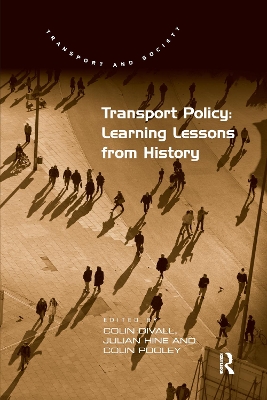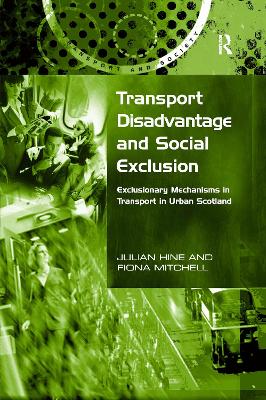Transport and Society
3 total works
Transport policy and practice is inherently concerned with issues of social and environmental justice. Numerous studies have demonstrated clear links between transport disadvantage and social exclusion. An adequate transport system is vital in enabling access to education and training, employment, shopping and recreation. Illustrated by a range of case studies from the UK and the US, this book puts forward an innovative theoretical approach which explores the development of an ethical framework for transport policy and investment. Drawing on the recently expanding area of engineering ethics to explore and inform this development, it offers insights into how policy and provision have failed to adopt the notion of ethical delivery and provision. It not only looks at the links between social justice and transport provision, but also addresses the important connections and synergies between social justice, accessibility, and social exclusion from a transport policy perspective.
Transport Policy: Learning Lessons from History
by Colin Divall and Julian Hine
Published 16 December 2015
The key aim of this volume is to demonstrate ways in which an understanding of history can be used to inform present-day transport and mobility policies. This is not to say that history repeats itself, or that every contemporary transport dilemma has an historical counterpart: rather, the contributors to this book argue that in many contexts of transport planning a better understanding of the context and consequences of past decisions and processes could lead to more effective policy decisions. Collectively the authors explore the ways in which the methods and approaches of historical research may be applied to contemporary transport and policy issues across a wide range of transport modes and contexts. By linking two bodies of academic research that for the most part remain separate this volume helps to inform current transport and mobility policies and to stimulate innovative new research that links studies of both past and present mobilities.
Transport Disadvantage and Social Exclusion
by Julian Hine and Fiona Mitchell
Published 10 July 2003
There is currently much interest in the role that transport plays in promoting, or alleviating 'social exclusion'. Exclusionary processes are, of course, multi-dimensional and a mixture of physical barriers, financial constraints, time budgets, access difficulties and psychological aspects such as fear, all combine in various ways to prevent the use of transport facilities. In order to be able to understand more accurately the relationship between transport and social exclusion, a fuller understanding is required. Data gathered from households to examine the problems experienced by women, the elderly, and disabled, and public transport users in accessing key facilities and influences on lifestyle. Interviews of policymakers and public transport providers provides insights into the problems of providing public transport to meet social inclusion objectives. This book illustrates the nature of these exclusionary processes and indicates how policy and practice could be developed to counter these effects.


